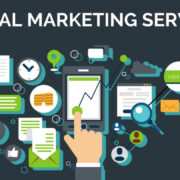In today’s rapidly evolving healthcare landscape, medical sales professionals play a crucial role in bridging the gap between innovative medical technologies and the healthcare providers who use them. As the demand for skilled medical sales representatives continues to grow, comprehensive and effective training has become more important than ever. This article delves into the world of medical sales training, exploring its significance, key components, and strategies for success in this dynamic field.
The Importance of Medical Sales Training
Medical sales training is not just about learning to sell products; it’s about developing a deep understanding of the healthcare industry, building relationships with medical professionals, and ultimately improving patient outcomes. Here’s why proper training is essential:
- Rapidly Evolving Technology: The medical field is constantly advancing, with new devices and treatments emerging regularly. Ongoing training ensures sales representatives stay up-to-date with the latest innovations.
- Complex Products: Medical devices and pharmaceuticals are often highly technical and require in-depth knowledge to explain their benefits and usage effectively.
- Regulatory Compliance: The healthcare industry is heavily regulated, and sales representatives must be well-versed in legal and ethical guidelines to ensure compliance.
- Stakeholder Management: Medical sales often involve multiple decision-makers, from physicians to hospital administrators. Training helps representatives navigate these complex relationships.
Key Components of Effective Medical Sales Training
A comprehensive medical sales training program should cover several crucial areas:
1. Product Knowledge
Understanding the products you’re selling is fundamental. This includes:
- Technical specifications and functionality
- Clinical applications and benefits
- Comparative advantages over competing products
- Potential side effects or contraindications
2. Medical and Scientific Education
A strong foundation in relevant medical knowledge is crucial. This may include:
- Anatomy and physiology
- Disease states and treatment protocols
- Current research and clinical trials
- Medical terminology
3. Sales Techniques and Communication Skills
Effective communication is key in medical sales. Training should cover:
- Needs assessment and consultative selling
- Handling objections and closing techniques
- Presentation skills for both one-on-one and group settings
- Active listening and empathy
4. Regulatory and Compliance Training
Understanding the legal landscape is crucial. This includes:
- FDA regulations and approval processes
- HIPAA compliance
- Anti-kickback laws and the Sunshine Act
- Industry codes of ethics
5. Business Acumen
Understanding the business side of healthcare is increasingly important. This may cover:
- Healthcare economics and reimbursement models
- Hospital purchasing processes
- Value-based care initiatives
- ROI calculations for medical devices
Innovative Approaches to Medical Sales Training
As the industry evolves, so do training methodologies. Here are some innovative approaches gaining traction:
1. Virtual Reality (VR) and Augmented Reality (AR)
VR and AR technologies offer immersive training experiences, allowing sales representatives to:
- Practice product demonstrations in a risk-free environment
- Simulate surgical procedures to better understand product applications
- Experience virtual customer interactions to hone communication skills
2. Microlearning
Breaking down complex information into bite-sized, easily digestible modules can improve retention and allow for more flexible learning schedules.
3. Gamification
Incorporating game-like elements into training programs can increase engagement and motivation, making the learning process more enjoyable and effective.
4. Peer-to-Peer Learning
Facilitating knowledge sharing among sales representatives can provide valuable real-world insights and foster a collaborative learning environment.
Overcoming Challenges in Medical Sales Training
While medical sales training offers numerous benefits, it also comes with its share of challenges:
1. Information Overload
The sheer volume of information can be overwhelming. Effective training programs must strike a balance between comprehensive coverage and digestible content.
2. Keeping Pace with Industry Changes
The rapid pace of medical advancements requires continuous learning. Successful training programs must be agile and regularly updated.
3. Measuring ROI
Quantifying the impact of training on sales performance can be challenging. Implementing robust metrics and tracking systems is crucial for demonstrating value.
The Future of Medical Sales Training
As we look to the future, several trends are likely to shape medical sales training:
- Increased Focus on Digital Health: With the rise of telemedicine and digital health solutions, training will need to incorporate these new technologies and selling environments.
- Emphasis on Soft Skills: As AI and automation handle more routine tasks, the human touch becomes even more critical. Training in empathy, emotional intelligence, and relationship-building will be paramount.
- Personalized Learning Paths: Adaptive learning technologies will allow for more tailored training experiences, catering to individual learning styles and knowledge gaps.
- Integration of Big Data: Leveraging data analytics in training can provide insights into performance trends and help identify areas for improvement.
Conclusion: Investing in Success
In the competitive and ever-changing world of medical sales, comprehensive and ongoing training is not just beneficial—it’s essential. By investing in robust training programs that cover product knowledge, medical education, sales techniques, regulatory compliance, and business acumen, companies can equip their sales forces with the tools they need to succeed.
As we embrace innovative training methodologies and adapt to emerging industry trends, the future of medical sales training looks bright. For those aspiring to enter or advance in the field of medical sales, a commitment to continuous learning and skill development will be key to unlocking their full potential and making a meaningful impact in the healthcare industry.
Remember, in medical sales, knowledge truly is power. By staying informed, adaptable, and passionate about improving patient outcomes, you can position yourself for a rewarding and successful career in this dynamic field.










